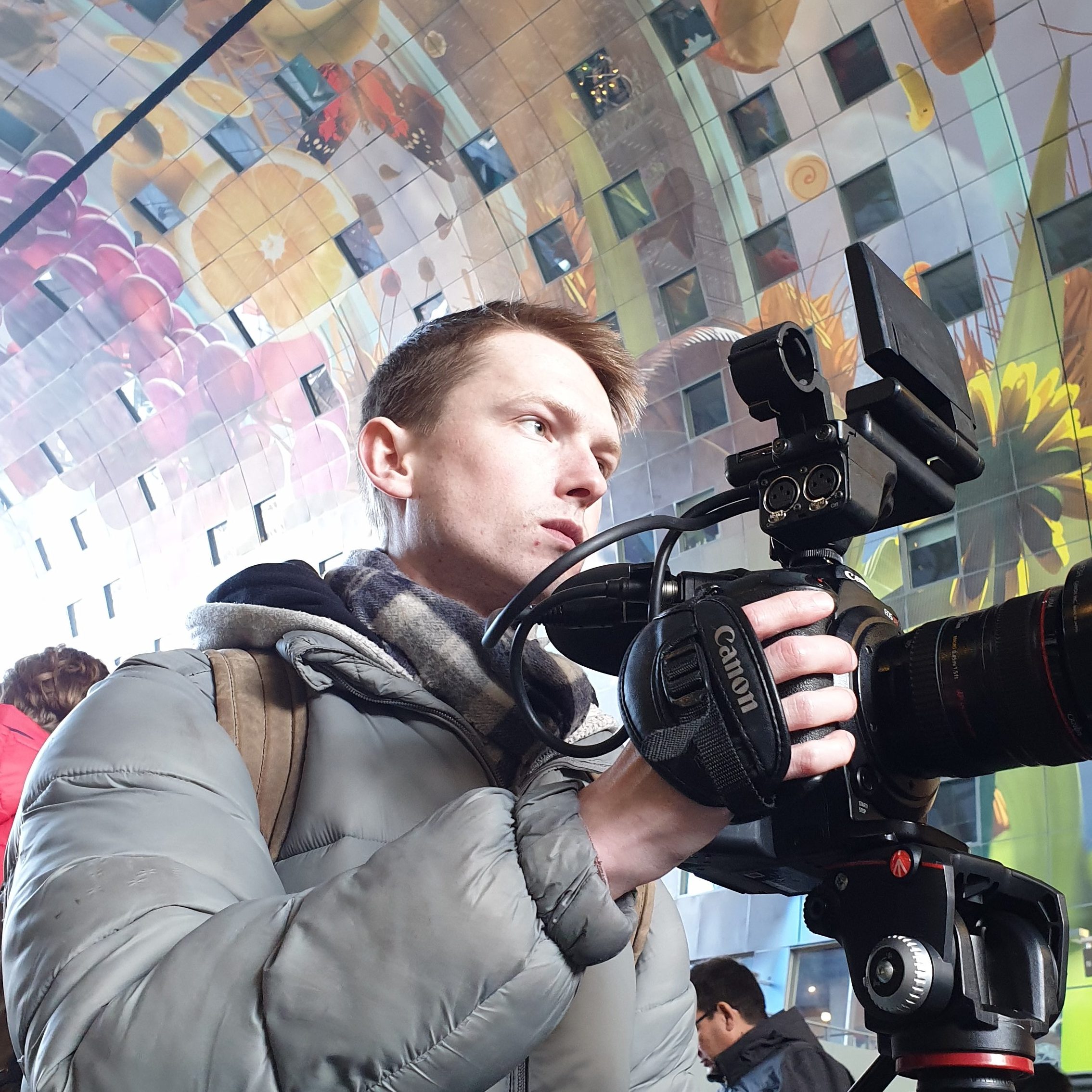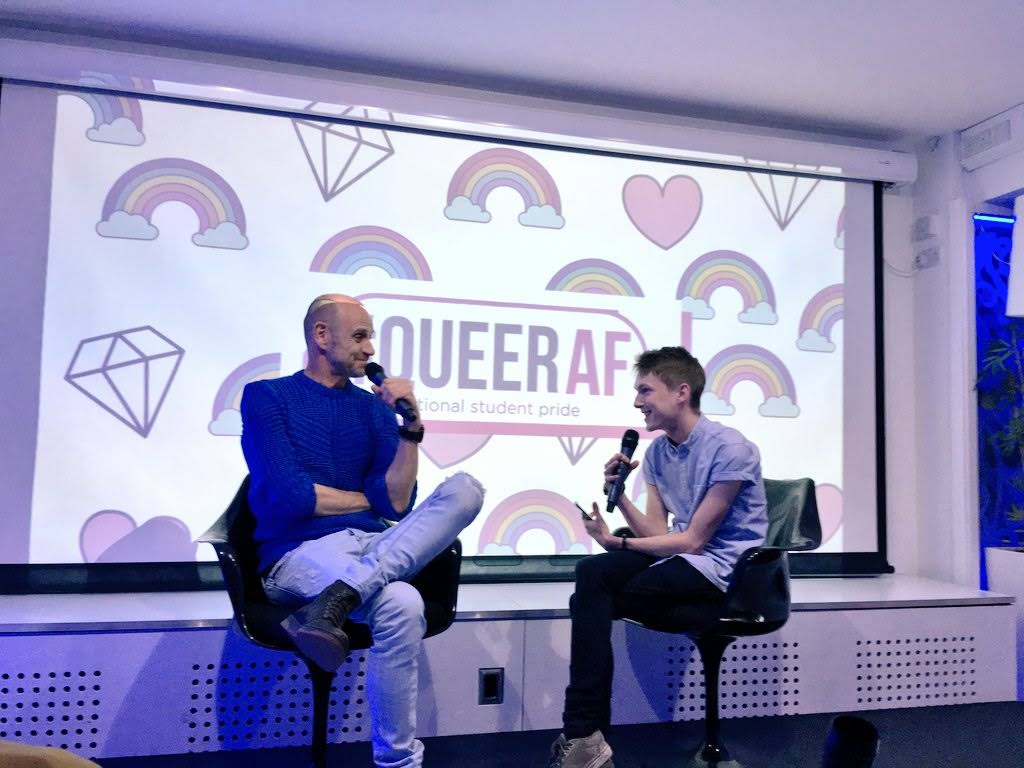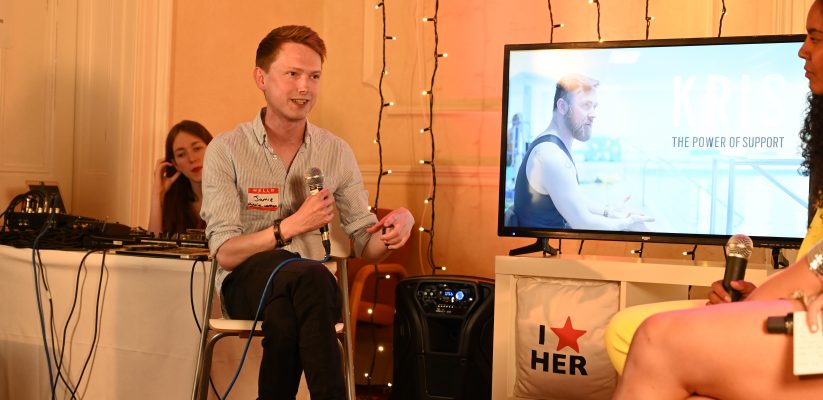This Pride month, we’re sharing the stories and celebrating achievements of our queer alumni. Here, we speak with Radio Production alumnus, digital content producer, and Founder of QueerAF, Jamie Wareham (He/Him).
Early in his career, Jamie was told to ‘stop pitching gay stories because there was no money or audience in them’.
Now he runs a media company that asks its audience what stories they want to see – and acts on it. He’s reversed who has the power to commission.
Jamie Wareham is an award-winning digital content producer and founder of QueerAF, which started as a podcast at the University of Westminster. As well as commissioning marginalised queer identities to make content, QueerAF funds queer creatives to build and support a new generation of queer media professionals to work in, with and change the media.
Building a career on niche ideas
Jamie is interested in power. Who has it and whether they share it.
When Jamie was at Westminster, he did a student radio show called Punk and Politics. He describes it as being “one of the few holding the Student Union to account.”

He got a job at a podcast production company and pitched stories he felt were important. After getting knocked back time and again, he decided to do it on his own. He went into the studio at weekends to record QueerAF and people loved it. It tells: “not just gay stories but niche, marginalised queer stories and generates social impact because of that.”
Eight years later it has won awards, enjoys an international audience and generates revenue.
“Don’t let anyone tell you that your niche ideas aren’t worth spending time and energy on,” he says.
Helping the next generation
“The queer community is very much about paying it forward,” say Jamie. “My favourite example and the one that’s easiest to get your head around is the one in the film Pride, where lesbians and gays supported the miners. There weren’t many of us that were miners, but we still did it because it was the right thing to do.”
The idea resonates deeply with Jamie.
He was helped financially at Westminster, when he got a disabled students allowance grant. It meant he could buy an ergonomic chair and professional audio recorder so that alongside his media production skills, he also had the equipment needed to become a freelance audio producer.
“Things like having equipment are huge barriers to accessing employment for people with disabilities or from marginalised backgrounds. Having things that just get you going or get you ahead so that you’re actually matched to most folks is a really big deal.
“It’s something that helped me get started, and something that I took forward to the business that I run now. We buy people at QueerAF equipment to create content.”
Changing who holds the power
Jamie’s not interested in keeping his success all for himself – he wants more voices to be heard and to tell stories.
“I think back in the day, particularly in media mogul land, a couple of people had all the power and held onto it. Whereas now, I think we’re seeing more social entrepreneurs entering the business community. They’re getting more power, not in order to keep it but to get power to give it away.”
“It’s about: how can we get power, but so we can give it back to people who are marginalised? The queer community is really good at helping other people.
“The media needs to restructure itself so that it’s delivering for the audience rather than the media moguls who run it. At the minute, the power dynamic is all wrong.”

Giving the audience a real voice
“I know QueerAF is a niche outlet. But what we’re doing is taking it back to those original ethical concepts that I was taught at Westminster and applying that as a principle above all else.
“When I set up QueerAF, I didn’t want to be another cis guy (albeit with a disability). Another gay media outlet. I thought: how do I shift that power from me and onto the audience?
“The way we do it is that when people sign up for a QueerAF membership, we ask them what kind of stories they want to see. That means when I’m commissioning stories, I’m thinking about what 300 people have said.
“It’s taken the commissioning power out of my hands. If we deliver on the things they want to see, they stay for another month or another year. That power dynamic shift is something I think could be interesting more broadly.
“I remember being a radical queer on campus, and asking how we can devolve power downwards. I think that’s one of the things that needs to happen – putting power into the hands of people who know what to do with it.”
We’re incredibly proud of the impact our alumni are making around the world, campaigning for inclusivity and celebrating queerness. This Pride Month, we’ve been asking alumni in the Q+ community how Westminster supported them in becoming who they are today. Keep a look out for more stories this week.
- Peter’s Blog to Alumni - 27 January2026
- Could you mentor a Computer Science student this February and March? - 7 January2026
- India Alumni Survey Results - 27 October2025
